Forum
Seminar on BRI: Unlocking the Development Bottleneck along the Belt and Road Initiative: Theory and Practice of China's Foreign Aid
Written by : MD Talebur Islam( Bangladesh)
Edited by: Zhang Mingyu
On the morning of December 25, 2023, Professor Song Wei of the School of International Relations and Diplomacy at Beijing Foreign Studies University delivered a lecture entitled 'Unlocking the Development Bottleneck along the Belt and Road Initiative(BRI): Theory and Practice of China's Foreign Aid' . Students from Russia, France, Ghana, Bangladesh, Zambia, Mexico, Pakistan, and Uganda attended the lecture.
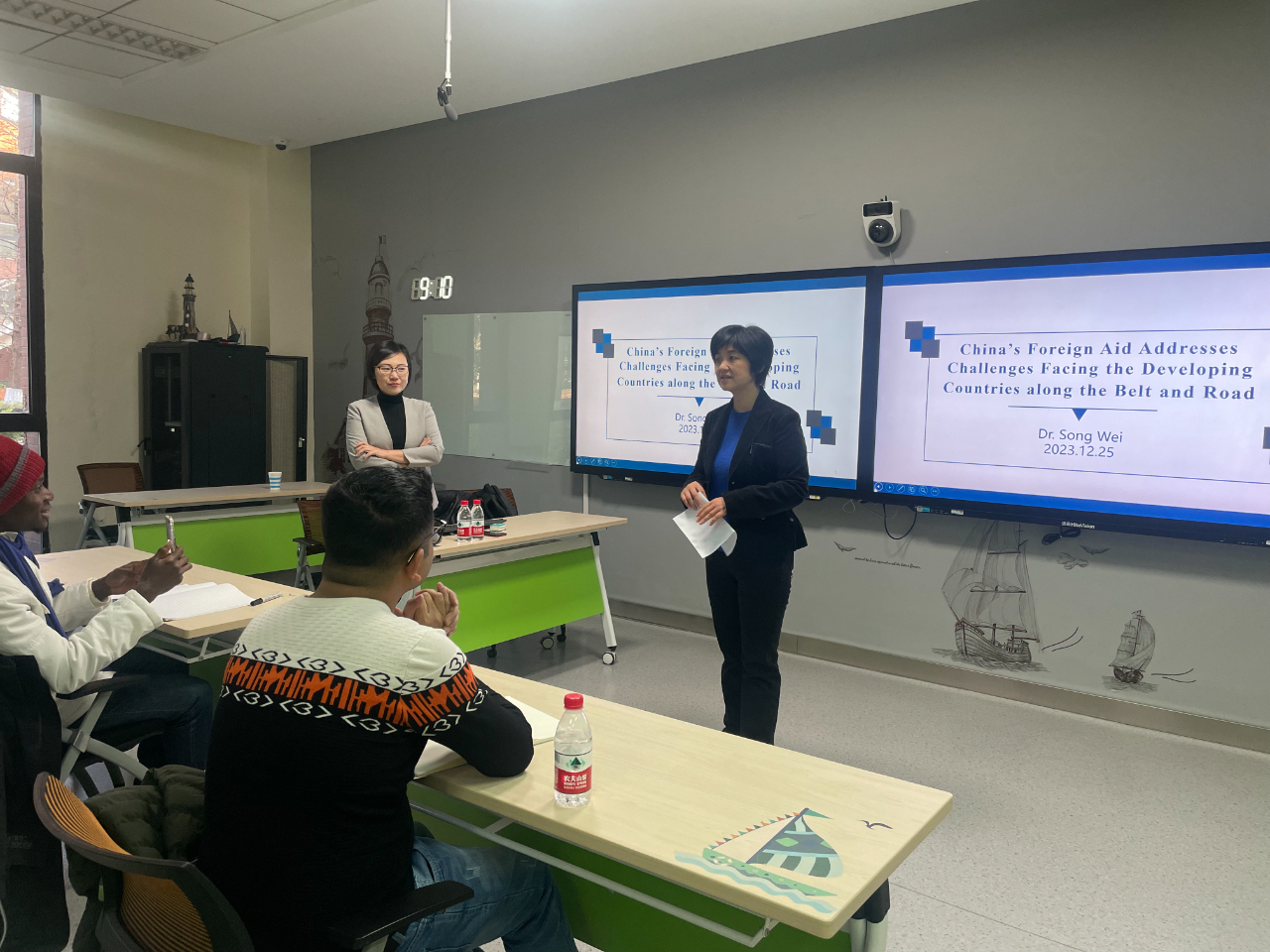
Before the lecture, Professor Jiang Xiaoli, Deputy-Dean of Silk Road School (SRS), warmly welcomed Professor Song and introduced her to the students. Professor Jiang stressed that the students would utilize this opportunity to absorb valuable knowledge.
In the first part of the lecture, Professor Song first introduced the BRI from five aspects: financial accommodation, policy communication, smooth trade, facility connectivity, and people-to-people communication, and then described the contributions made by the BRI in the past 10 years from the aspects of health, economic recovery, green development, and poverty alleviation. For example, the Silk Road Health project set up in Uzbekistan in 2016, the application of traditional Chinese medicine in fighting global diseases, the role of traditional Chinese medicine in promoting ASEAN's economic recovery, the wind power project in Kazakhstan, the Carlot Hydropower Station in Pakistan, the establishment of more than 20 economic and trade cooperation zones in Africa, more than 100 industrial parks to help Africa's economic development, and so on.
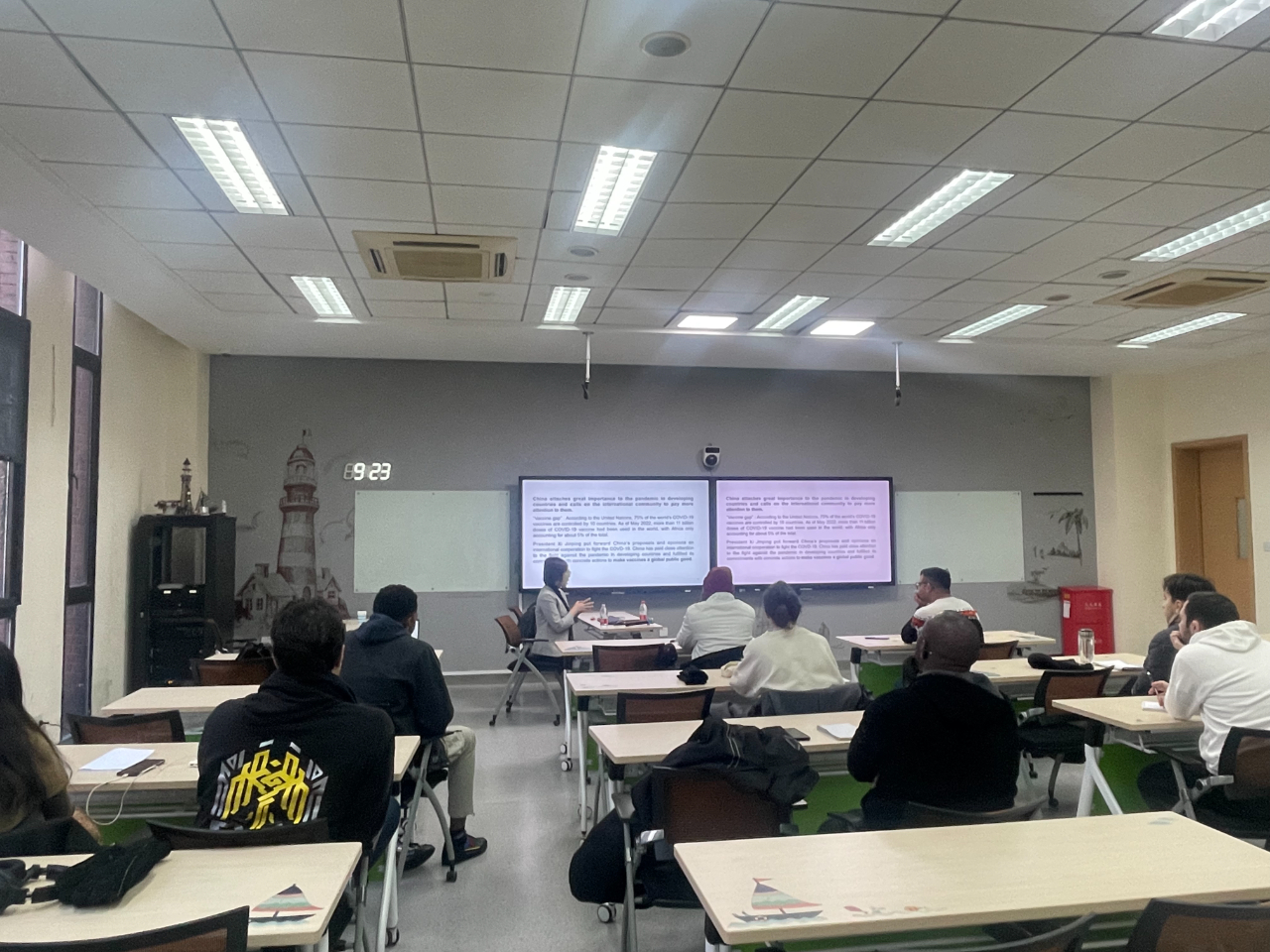
The second part of the lecture mainly summarizes the development bottlenecks faced by developing countries, such as geopolitical risks, lack of infrastructure, lack of economic vitality, lack of skilled labor force, etc. It takes violent extremists in Ethiopia and widespread infrastructure deficiencies or unequal distribution in Asia and Africa as examples.
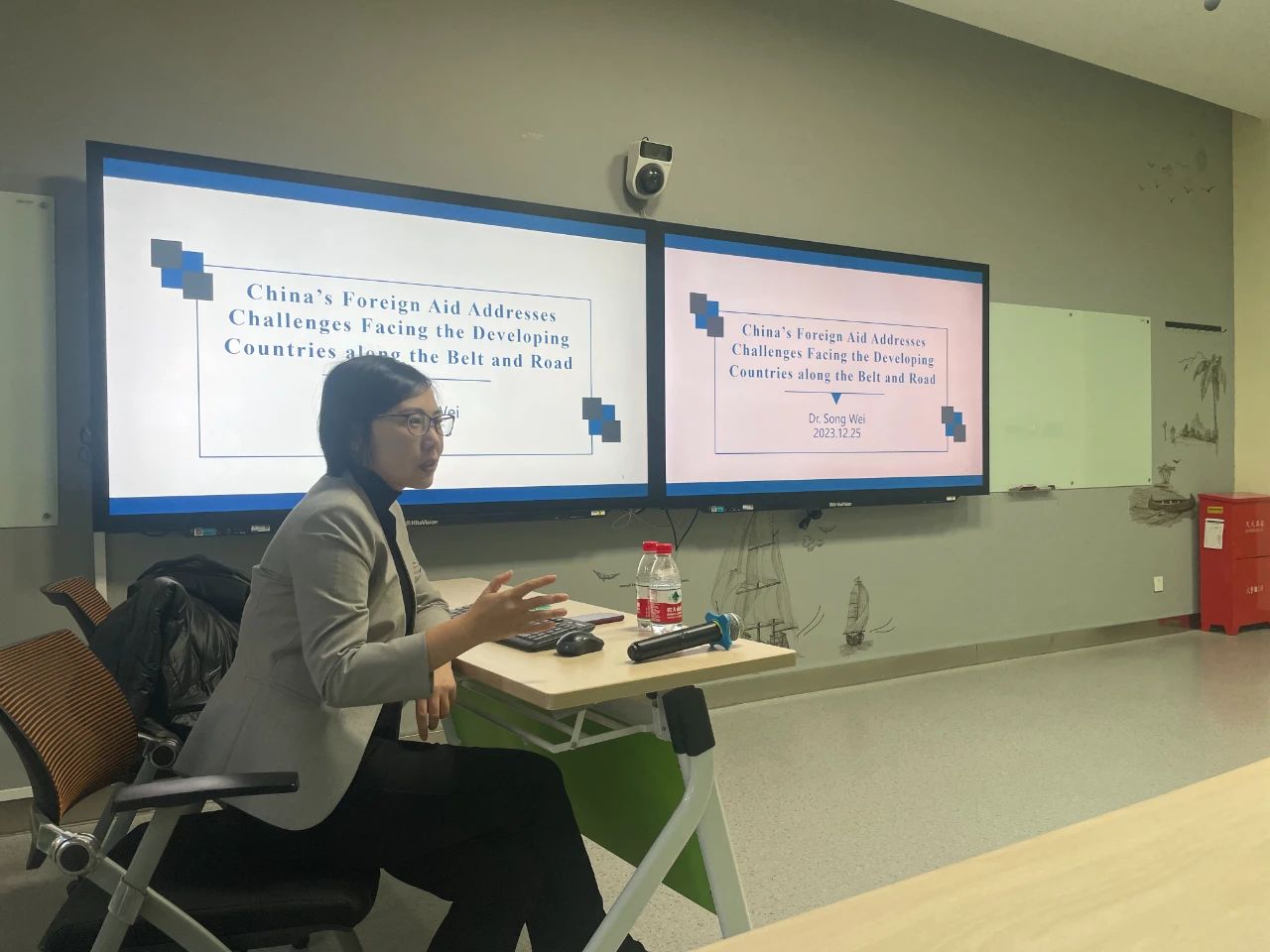
In the third part, Professor Song talked about China's support to developing countries, including how it manages, routes, finances, forms, and allocates foreign aid. She added about the management structure of government departments, how different ministries work together, and how foreign aid reform is managed. Finally, she went into great detail about the 'eight principles of the Chinese Government's Foreign Economic and Technical Assistance' that Premier Zhou Enlai put forward in 1964. And the basic contents of the White Paper 'China's Foreign Assistance,' which were published in 2011, and the revised editions of 2014 and 2021.

In the last part of the lecture, Professor Song focused on how to solve the development bottleneck in the future. It introduced China's measures to support the sustainable development of infrastructure further, design comprehensive assistance programmes for industrial parks, and help human resources development through training programmes, industry forums, and educational exchanges and cooperation. She said that there are still many countries in urgent need of assistance; their resources are unevenly distributed and have uneven development, but the actual conversion rate of foreign aid is far lower than expected due to the fact that the aid target is lower than the actual development needs, aid projects are destroyed, and other reasons. In the future, China will improve the self-development capacity of cooperating countries, provide assistance within the framework of regional cooperation, and actively participate in international exchanges and cooperation.
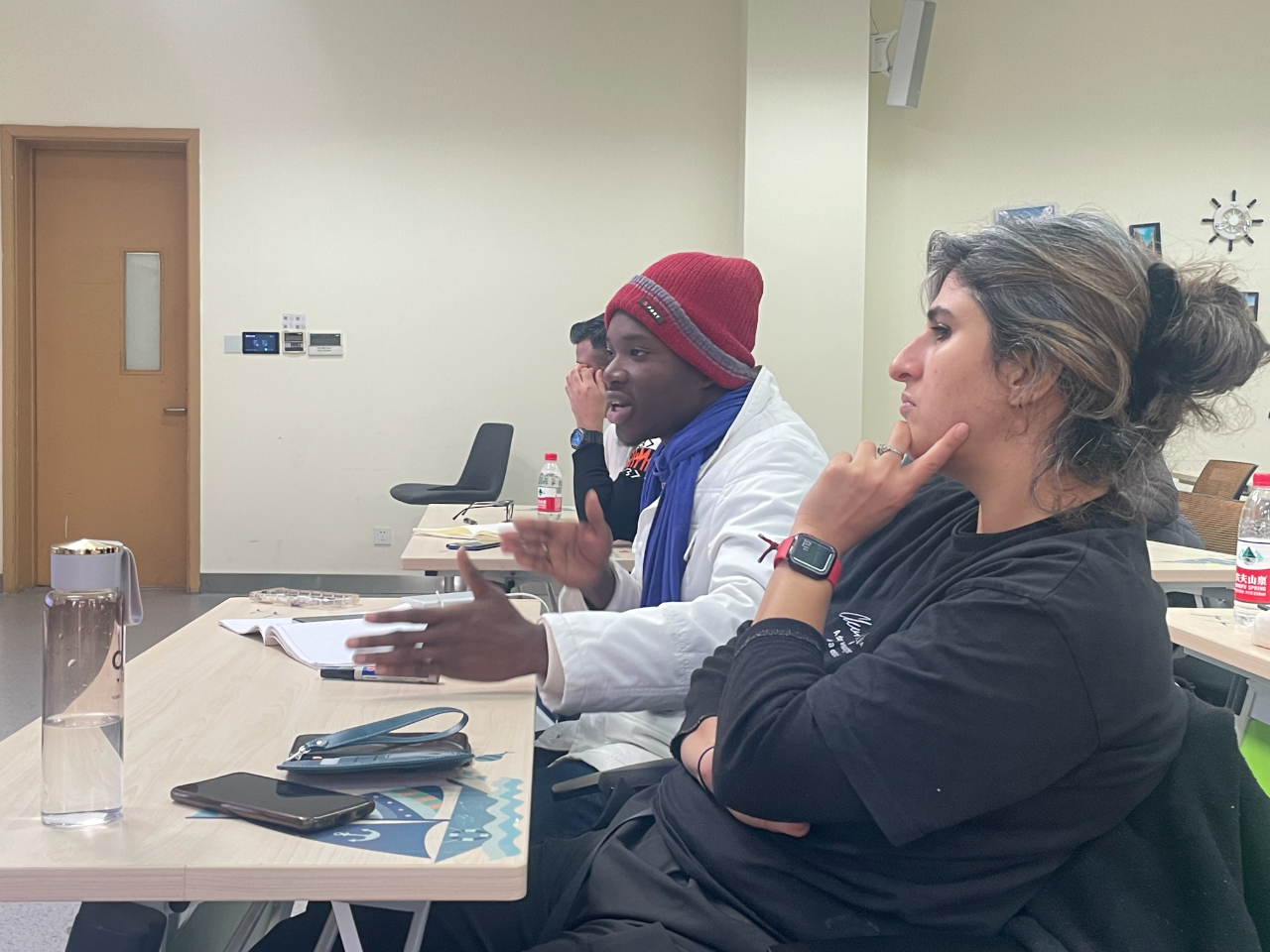
In the Q&A session, the students actively participated and raised questions, and Professor Song answered them individually during the lecture session.
Talebur from Bangladesh asked whether the eight principles were put forward in 1964, and China has undergone reform and opening up since 1978, and now it is 2023, whether China needs to make certain revisions to these principles. Professor Song said that the eight principles were put forward after China accepted assistance from the Soviet Union, so particular emphasis was placed on equality. These principles are still being implemented today, but they can make necessary adjustments due to the problems encountered in the implementation process.
In response to Talebur's question about the inability of recipient countries to repay loans, Song said it was a real challenge for China. China has cancelled some of the loans, but the concessional loans still need to be repaid. The term of these loans is very long, and the purpose of these loans is to promote development so China can recover the loans by helping these countries solve the problems they encounter in development.
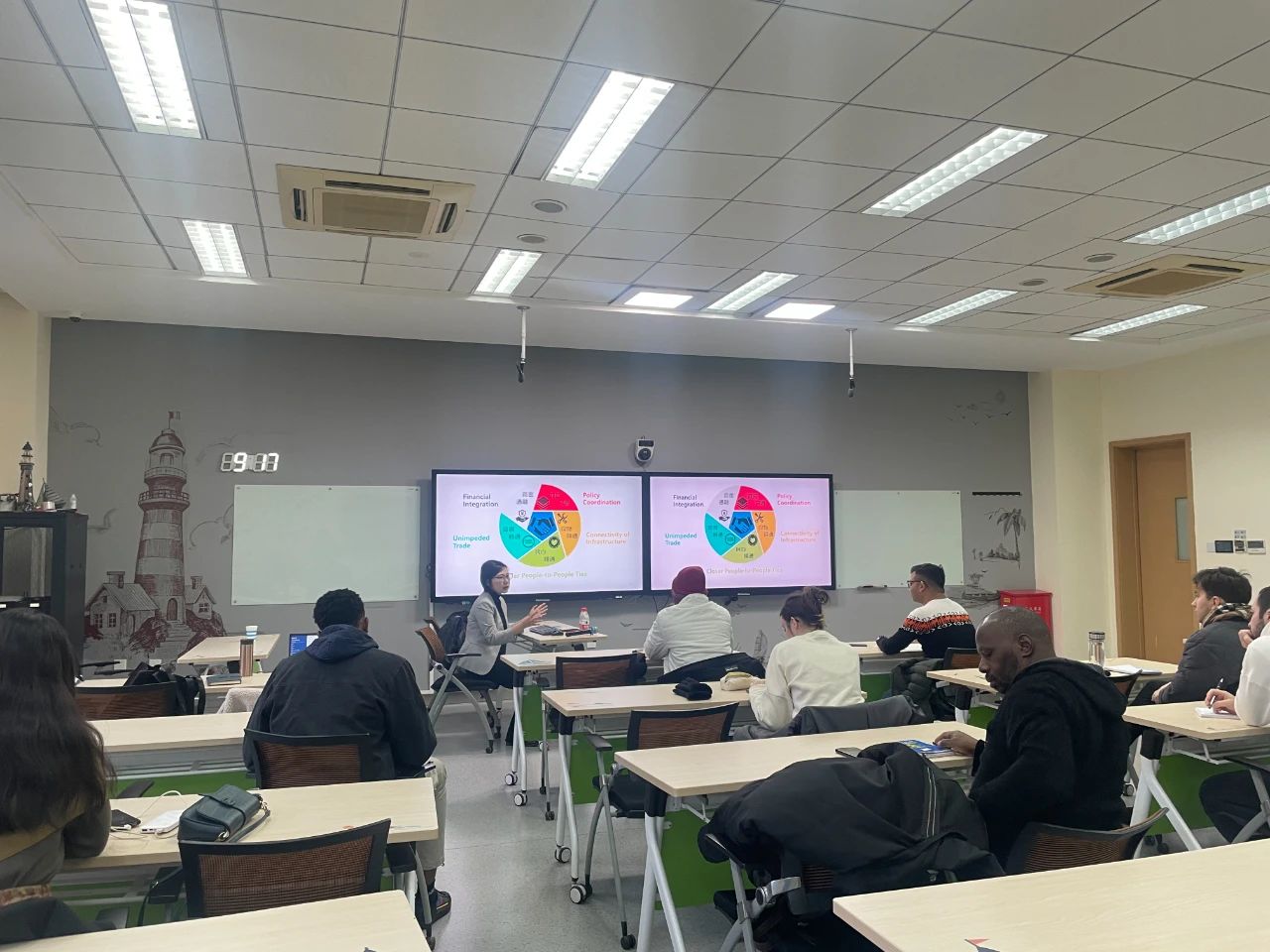
After the lecture, the students said that the lecture was thought-provoking and they gained a lot of knowledge and insights. Professor Song also expressed the hope that in the future, there will be opportunities to establish long-term communication channels with the Silk Road School and carry out broader exchanges and cooperation.

Professor Song was Deputy Director of the Institute of World Economy, Chinese Academy of International Trade and Economic Cooperation, Ministry of Commerce, Executive Deputy Director (part-time) of the Research Centre of the 'Hongqiao International Economic Forum,' Deputy Director and Researcher of the Institute of International Development Cooperation, and is an expert in foreign aid under the 'Belt and Road' initiative.

